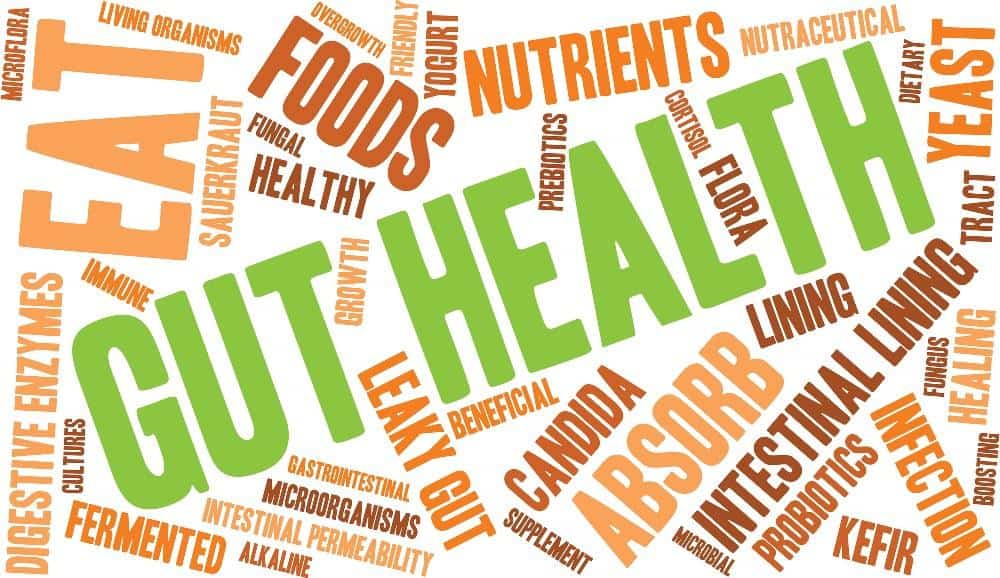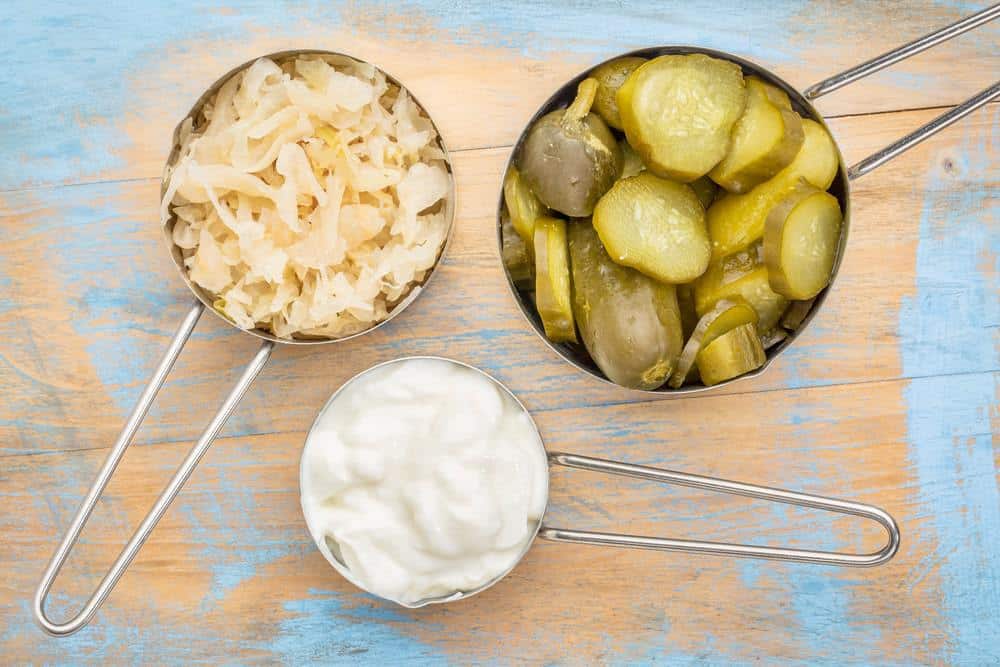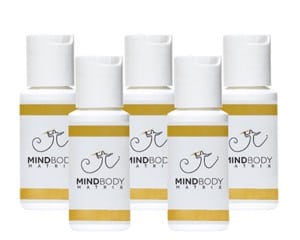
The gastrointestinal tract is one of the busiest networks in the human body. It works nonstop – transporting food from your mouth to the stomach, converting it into beneficial nutrients and energy, and driving waste products out of the body.
All these complex jobs of the digestive tract keep humans healthy. But do you know that gut has a significant and bigger role to play when it comes to keeping humans healthy?
According to experts, the digestive tract or the GI system is linked to immunity, chronic diseases, cancer, type 2 diabetes and emotional stress.
The microbiome or the community of bacteria and microorganisms in your intestines, and stomach (gut) influence these factors. How does it happen? Let’s delve further and understand how gut health affects the body.
What Is Gut Health?
Gut refers to the human digestive tract that contains gut microbiota or trillions of bacteria, all working to digest and absorb energy from the food you eat. This bacteria environment or microbiome in the large intestine sustains your gut health.
The gut can have around 300-500 different types of bacteria. Some of these bacteria are harmful but many are essential to keeping the body healthy.
Gut health is the balance of the bacteria in the gastrointestinal tract, keeping all the critical functions in the digestive system working excellently. A healthy gut has immune cells and thriving bacteria that drive away harmful bacteria, fungi, and viruses.
Why Gut Health Is Important

The incredible ability of the digestive system, specifically the gut, to sustain health and wellness has been proven by numerous studies and researches during the past two decades. Gone are those days when the gastrointestinal tract is considered a simple functional system that digests the food to get the nutrients that the body needs.
Its functions are now linked to mental health, autoimmune disorders, endocrine issues, mood, cancer, and skin conditions. A healthy gut has tremendous effects on the body’s physiological, mental, emotional, and physical condition.
Let’s take a look at why gut health is important.
Excellent health begins in your gut, so take care of it.
Brain
Do you wonder why when you are anxious, your stomach acts weird? This is because your brain and gut have a very strong connection, sending signals to each other at all times.
The gut is also responsible for the production of 90% of the serotonin in the body. This beneficial hormone helps in regulating emotions and moods.
Any imbalance in the gut’s microbiome can trigger depression, stress or anxiety, or vice versa. The brain informs the gut when there is a stressor, and the gut sends an instant message to the brain when something wrong happens in the GI tract.
Heart

Studies reveal that gut health has a huge impact on cardiovascular health. The following findings show the connection of the gut’s microbiome to some cases of cardiac conditions:
- Artery hardening especially in women with poor gut health or lower diversity of good bacteria
- Inflammation impairs the blood vessels’ functioning, leading to the impairment of the inner lining. It results in arterial hardening, plaque formation, and stiffness.
- Coronary artery disease due to the massive build-up of plaque in the arteries
- Stroke and heart attack are caused by a heightened level of TMAO or trimethylamine N-oxide. This substance is linked to a greater risk of blood clot-related conditions like strokes and heart attacks. Cardiologists believe that certain kinds of gut bacteria convert the choline from red meat or eggs into TMAO, attributing to serious cardiovascular conditions.
Immune System
The microbiota of the gut plays a vital role in the synthesis of enzymes, amino acids, and vitamins, as well as mineral and nutrient absorption, and short-chain fatty acids production.
All the foods you consume communicate with the immune receptors in the gut, triggering the production of necessary enzymes, hormones, and cell types to help the optimum immune functions.
In addition, the gut has nodules of lymphoid tissue known as Peyer’s patches on the lining of the small intestines. They help in monitoring the presence of harmful pathogenic substances and bad bacteria that can cause health issues.
When necessary, Peyer’s patches can generate an immune response to release antibodies to defeat the enemies of the gut.
Want to learn which 18 foods boost immune system naturally? Read about it here.
How To Support Gut Health
Now that you understand how gut health affects the body, your next step is to support its optimum state by leading a healthy lifestyle and opting for a healthy diet.
The food you eat greatly contributes to the bacterial makeup of the gut. If you are experiencing stomach pain, bloating, diarrhea, gas, or nausea when you eat certain foods, they are signs that something is wrong in your gut microbiome.
The best way to prevent them from happening is to eat the right foods that balance the gut flora and reduce intake of high-fat, high-sugar, and processed foods.
A healthy lifestyle is another crucial factor to support a healthy gut. It means skipping bad habits such as the consumption of tobacco, alcohol, and caffeinated beverages. It entails saying yes to good habits that help the gut such as adequate exercise, rest, and sleep.
It is also important to manage your stressors to prevent negative impacts on the gut’s colonic motor activities that can cause common bowel disorders.
What Food Is Best For Gut Health?

Feeding your body with the right food is the key to optimize the functions of the gut.
- Fermented food/Probiotics food
Fermented foods like yogurt, aged cheese, kefir, sauerkraut, kimchi, miso, tempeh, and pickled vegetables are some of the best sources of probiotics. Adding probiotics or foods with live good bacteria boosts gastrointestinal health. Probiotics are also ideal for treating irritable bowel syndrome, lactose intolerance, and allergy symptoms.
- High-fiber foods
A high-fiber diet with lots of vegetables, legumes, fruits, and whole grains helps to improve digestive health. Fiber helps in the prevention of constipation, hemorrhoids, irritable bowel syndrome (IBS), and diverticulosis. A diet plan with high-fiber foods also supports weight loss.
- Vegetables
According to studies, there is a significant improvement in gut health when people follow a vegetarian diet. Eating vegetables, especially the green, leafy ones, can lower gut inflammation. Moreover, vegetables are rich in insoluble fiber that helps in waste and toxin elimination.
- Legumes
Legumes are a good source of gut-friendly fiber that reduces bad bacteria and improves bowel function. The best legumes for gut health are chickpeas, lentils, peas, soybeans, and pinto beans. They are good at lowering the risks of diabetes, heart diseases, and cancers.
- Herbs
There are certain herbs that you can add to your meal preparation to boost the colonies of good bacteria on the gut. Herbs act as prebiotics for the microbiome and treat leaky gut. Some of the excellent herbs to use are Triphala, Licorice root, and Slippery elm.
And if you want to learn more on best herbs for digestion, here’s more information on it.
- Healthy fats
Eating foods with healthy fats is vital to gut health and overall well-being because they are the building blocks of hormones and cell membranes. However, it is vital to choose anti-inflammatory fats to ensure the balance of gut bacteria.
Healthy fats include Omega-3 fats (salmon, mackerel, sardines, chia seeds, flax seeds, and walnuts) and Omega-6 fats (vegetable oils, cashews, almonds, corn oil, soybean oil, and sunflower seeds).
Healthy Living Activities That Support Gut Health

- Exercise. Regular workout reduces stress levels and helps in maintaining a normal weight. These promote positive effects on your gut, which also help in weight management. Have at least a 15 to 30-minute workout or physical activity daily to keep yourself healthy.
- Enough sleep. Getting at least 6-8 hours of sleep at night is vital for a healthy gut. Not enough sleep can cause digestive issues like bloating, constipation, and nausea. Establish regular sleep habits that encourage balance in the gut flora.
- Avoid/manage stress. Extreme and chronic stress can cause the gastrointestinal tract to react negatively. Psychological stressors can disrupt the bacteria which affects the overall health. Learn stress management methods like meditation, yoga, and deep breathing exercises.
- Eat slowly. Chew your food well to lessen the job of your digestive system. Eating your food slowly and chewing thoroughly helps in the proper absorption of nutrients and encourage full digestion. In addition, try not to eat while on the go because it can cause indigestion.
- Eat at regular times. Follow a regular eating schedule to avoid indigestion and stomach issues. Eating your meals around the same time every day keeps the gut in top condition. Irregular food intake and size portion can also cause tremendous stress on your digestive system.
- Hydrate. Drinking plenty of water sustains your bodily functions. Water helps in waste elimination, which is vital to get rid of toxic and harmful substances in the body. Avoid drinking chlorinated water as it can kill not only the bad bacteria in your gut but also the good ones.
Is there a difference between hydrogen water and alkaline water? Read about it here.
- Don’t drink while you eat. When it is time to eat, the stomach knows it, so it will release digestive enzymes or juices. Drinking water or any beverage while eating will dilute them. To avoid diluting the enzymes that are necessary for digestion, it is best to drink 10 minutes before your meal and 1 hour after eating.
- Look after your mental well-being. A healthy mental state supports a healthy gut and vice versa. Gut health plays a big role in mental health, helping you manage stress, anxiety, and emotional issues that impact your mental wellness. Good digestion and eating the right foods help the mind experience a rest-and-digest state.
- Consider intermittent fasting. Intermittent fasting involves at least 8 hours of not eating food. According to various studies, fasting helps prevent irritable bowel syndrome (IBS) symptoms like diarrhea, bloating, gas, constipation, and abdominal discomfort. Intermittent fasting helps improve gastrointestinal motility, reducing the effects of SIBO or small intestinal bacterial overgrowth.
What Is Bad Gut Health?

If you are already experiencing chronic or intermittent abdominal pain, constipation, bloating, heartburn, vomiting/nausea, or loose stools, they are signs of underlying gastrointestinal problems. These conditions can be caused or aggravated by the following:
- Sugar and artificial sweeteners
- Processed foods
- Synthetic antibiotics
- Over-the-counter medications to induce sleep, alleviate fatigue, resolve stomach upset condition, and painkillers
- Smoking
- Alcohol
- Food preservatives
- Stress
Why Gut Health Is Important: Key Takeaway
So, how is your gut today? Your answer will depend on how you take care of yourself, your lifestyle, and your dietary plan. Keeping a healthy gut is crucial to a healthy body and mind.
A problematic gut will not efficiently digest, absorb, and assimilate the vital nutrients to sustain your wellbeing. This is why gut health is important. The key is to keep the good bacteria in your gut happy and strong to ward off the bad bacteria.
Related Posts:
Diabetes Type 2 Management: Can Diabetes Be Reversed?
Probiotics – Just A Fad Or Something That You Really Need?
Natural Remedies For Anxiety And Depression – 14 Home Treatments Without Medication
Fasting for Healing: Health Benefits of Intermittent Fasting
Natural Sugar vs Added Sugar: Which Sugar Is Best For You?
18 Foods That Boost Immune System Naturally
5 Best Herbs for Digestion: How to Improve Digestion Naturally






